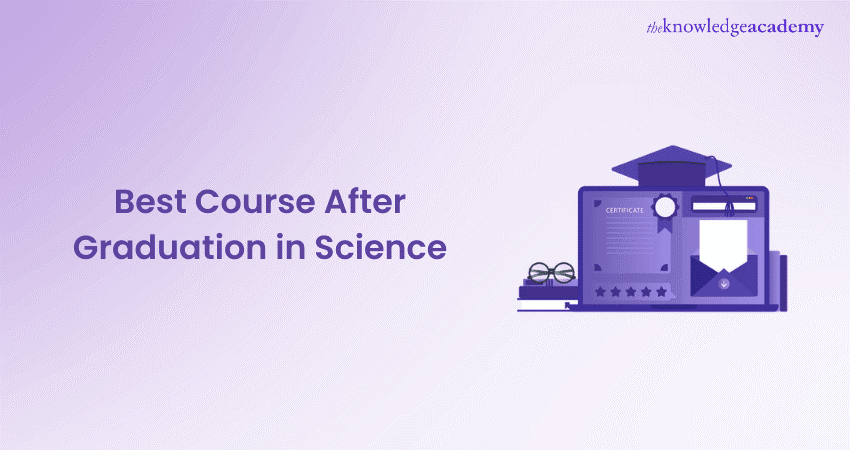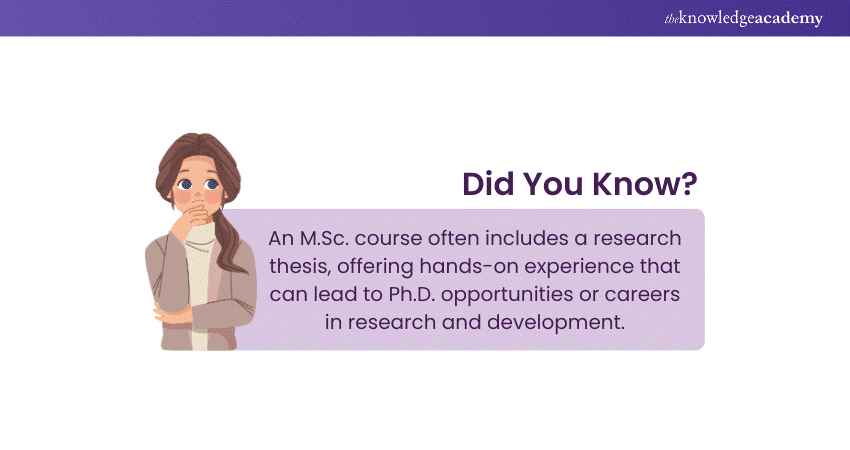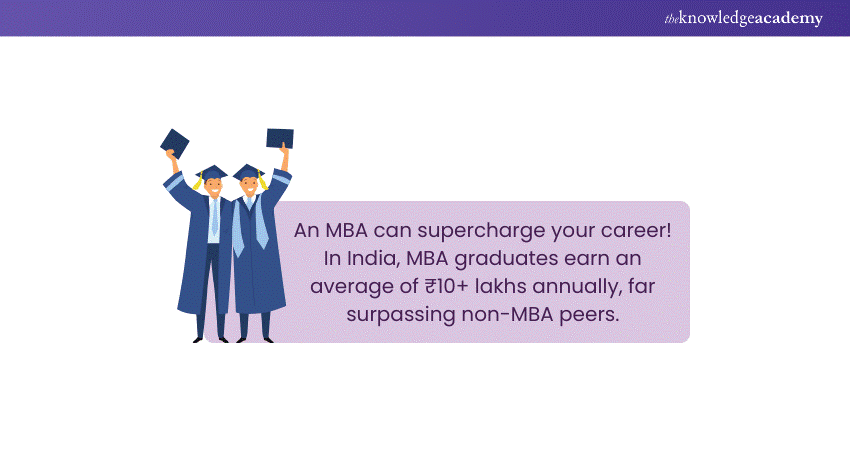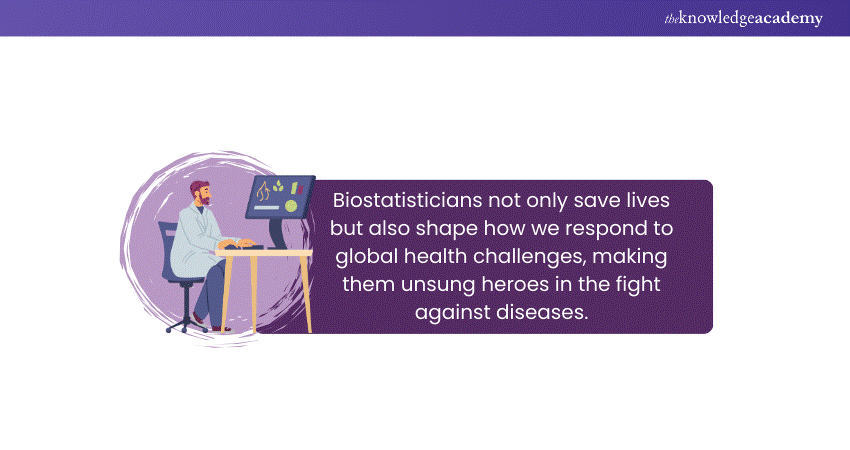We may not have the course you’re looking for. If you enquire or give us a call on +27 800 780004 and speak to our training experts, we may still be able to help with your training requirements.
Training Outcomes Within Your Budget!
We ensure quality, budget-alignment, and timely delivery by our expert instructors.

Choosing the Best Course After Graduation in Science can feel like starting the next chapter of an exciting journey. With so many options out there, it’s all about finding the path that sparks your interest—whether it’s diving into data analytics, tackling sustainability challenges, or advancing in healthcare.
This detailed blog is your map, guiding you through various thrilling courses that can unlock new worlds of opportunities. Each course offers a unique journey, helping you specialise in what excites you most while building a fulfilling and impactful career. Ready to take the leap? Let’s explore the Best Course After Graduation!
Table of Contents
1) What is B.Sc.?
2) Best 10 Courses After B.Sc.
3) Career Options After B.Sc.
4) List of Government Exams After B.Sc.
5) Conclusion
What is B.Sc.?
A Bachelor of Science (B.Sc.) is an undergraduate degree awarded to students in various scientific disciplines such as physics, chemistry, biology, mathematics, and more. The B.Sc degree provides a solid foundation in scientific theory and practical knowledge, preparing students for higher studies and the job market. It equips graduates with analytical skills and scientific reasoning, essential for advancing in specialised fields or venturing into new career avenues.
Best 10 Courses After B.Sc.
In this section we will discuss top 10 courses after B.Sc.:
1) M.Sc. (Master of Science)
Pursuing an M.Sc. after B.Sc. is one of the most common and sought-after options. This two-year programme offers:
a) Physics
b) Chemistry
c) Biology
d) Mathematics, and more.

It deepens knowledge and research skills, making graduates eligible for higher-level academic, research, or industry positions.
2) MBA (Master of Business Administration)
An MBA is an excellent option for B.Sc. graduates interested in business management. This programme teaches:
a) Organisational Management
b) Marketing
c) Finance
d) Entrepreneurship
An MBA helps transition from a purely scientific background to a managerial or leadership role in various industries, such as:
a) Pharmaceuticals
b) Technology, or
c) Consulting

3) MCA (Master of Computer Application)
If you are inclined toward computer science, pursuing an MCA is one of the best courses after graduation in science. The programme focuses on software development, programming languages, system design, and networking. With the increasing demand for IT professionals, an MCA opens doors to roles like software developer, system analyst, and IT consultant.
4) Management
A post-B.Sc. management course, such as a Post Graduate Diploma in Management (PGDM), focuses on equipping graduates with the skills needed to excel in business environments. This course can be an excellent choice for those seeking leadership positions in:
a) Scientific Organisations
b) Laboratories, or
c) Multinational Companies
5) Data Science
Data Science is rapidly emerging as one of the most valuable fields in today’s digital age. B.Sc. graduates, particularly those with a mathematics, computer science, or statistics background, can opt for a specialised course in data science. This will equip them with the skills to:
a) Analyse Large Datasets
b) Create Predictive Models, and
c) Make Data-driven Decisions
making them highly sought after in sectors like finance, healthcare, and technology.
6) Machine Learning
Machine Learning, a subset of Artificial Intelligence, is another cutting-edge field that B.Sc. graduates can explore. With an increasing demand for automation and intelligent systems, machine learning offers career opportunities in:
a) Research
b) Software Development, and
c) Data Analysis
An in-depth understanding of algorithms, programming languages, and statistical techniques can give B.Sc. graduates a competitive edge in this rapidly growing field.
Master the future with our Machine Learning Course—join now and build intelligent solutions!
7) B.Ed.
For those interested in teaching, pursuing a B.Ed. after B.Sc. allows graduates to become educators in schools or colleges. This course covers:
a) Teaching Methodologies
b) Classroom Management, and
c) Educational Psychology
preparing graduates for a career in education.
8) Technical Short-term Courses like PGDM
For B.Sc. graduates who want to quickly enter the job market with specialised technical skills, pursuing short-term courses like Post Graduate Diploma in Management (PGDM) or certifications in fields like digital marketing, project management, or software development is a good option. These courses offer practical skills that enhance employability without requiring a long-term commitment.
9) LLM
If you are interested in law, pursuing an LLM after completing a B.Sc. can open up various opportunities in the legal field. Graduates can specialise in intellectual property, environmental law, or corporate law. This is ideal for those who want to blend science with legal expertise, particularly in patent law, biotechnology law, or environmental law.
10) Cyber Security
With the rise in cyber threats, cyber security has become one of the most lucrative fields for B.Sc. graduates, especially those with a computer science or information technology background. A course in cyber security equips individuals with the knowledge to protect data and systems from cyber-attacks, preparing them for roles like security analyst, ethical hacker, and cyber security consultant.
Protect the digital world with our Cyber Security Training—join today to become a cybersecurity expert!
Career Options After B.Sc.
B.Sc. graduates have numerous career opportunities available to them, depending on their specialisation and interests. Here are some of the popular career paths for B.Sc. holders:
1) Scientist
With an M.Sc. or higher qualification, B.Sc. graduates can become scientists in various research fields, including biology, chemistry, physics, and environmental science. Research institutes, universities, and private organisations offer opportunities for scientific careers.
2) Scientific Assistant
Scientific assistants work alongside scientists to assist in research and development. This role involves conducting experiments, analysing data, and maintaining lab equipment.
3) Lecturer
If teaching is your passion, you can become a lecturer in schools, colleges, or universities. A post-graduate qualification, such as M.Sc. or M.Ed., is usually required for academic positions.
4) Biostatistician
Biostatisticians apply statistical methods to biological and medical research. They analyse data from clinical trials, health studies, and experiments to identify trends and make data-driven decisions.

5) Research Analyst
Research analysts gather, interpret, and analyse data to help businesses make informed decisions. B.Sc. graduates in fields like economics, statistics, or computer science are particularly suited for this role.
6) Clinical Research Associate
Clinical research associates oversee clinical trials, ensuring that they are conducted ethically and in compliance with regulations. This role is ideal for B.Sc graduates with a focus on life sciences.
7) Chemist
A chemist works in laboratories and industries to study chemicals, compounds, and processes. They may be involved in product development, quality control, or chemical analysis.
8) Lab Technician
Lab technicians assist in laboratory work, such as preparing samples, operating equipment, and ensuring that experiments are conducted accurately. This is an excellent entry-level role for B.Sc. graduates.
9) Physicist
Physicists study the fundamental principles of matter and energy. They may work in academia, research institutions, or aerospace, energy, and healthcare industries.
10) Consultant
Consultants with a B.Sc. background advise businesses on specific technical or operational challenges, particularly in IT or engineering. They analyse data, suggest improvements, and help implement solutions.
11) Researcher
Research-focused roles in academia, think tanks and private companies require B.Sc. graduates to conduct scientific studies, explore new technologies, and make discoveries that contribute to their field of expertise.
12) Geoscientist
Geoscientists study the Earth’s processes, materials, and history. With expertise in geology, environmental science, or geophysics, they work in research, natural resource exploration, or environmental protection.
13) Enumerator
Enumerators collect data for research, surveys, or censuses. They gather information from respondents and ensure the data's accuracy.
14) Astronomer
Astronomers study celestial bodies, such as stars, planets, and galaxies. They use telescopes and other equipment to explore the universe and contribute to space research.
15) Teacher
For those who wish to teach in schools or colleges, B.Sc. graduates can pursue teacher training programmes like B.Ed. and become educators in their chosen field of science.
Transform your teaching skills with our Online Teacher Training—join now and inspire the next generation!
List of Government Exams After B.Sc.
After completing a B.Sc., there are numerous government exams that offer stable and lucrative career opportunities. Some of the popular exams include:
a) UPSC Civil Services Exam
b) SSC CGL (Staff Selection Commission Combined Graduate Level)
c) GATE (Graduate Aptitude Test in Engineering)
d) NET (National Eligibility Test)
e) IBPS (Institute of Banking Personnel Selection)
f) RBI Grade B Exam
Conclusion
The Best Course After Graduation in Science is all about finding the perfect match for your passions and dreams. It’s not just a course—it’s the key to unlocking exciting opportunities and creating a future you’re excited to live. With so many paths to choose from, trust your instincts and embark on the journey that feels right for you.
Empower your future with our Personal Development Courses—begin your transformation today!
Frequently Asked Questions

Choose a course that aligns with your interests, strengths, and long-term career goals. Explore fields like technology, healthcare, or data science to find what excites you most.

To pursue a research career, consider further studies like a Master's or PhD and gain hands-on experience through internships or projects.

The Knowledge Academy takes global learning to new heights, offering over 30,000 online courses across 490+ locations in 220 countries. This expansive reach ensures accessibility and convenience for learners worldwide.
Alongside our diverse Online Course Catalogue, encompassing 19 major categories, we go the extra mile by providing a plethora of free educational Online Resources like News updates, Blogs, videos, webinars, and interview questions. Tailoring learning experiences further, professionals can maximise value with customisable Course Bundles of TKA.

The Knowledge Academy’s Knowledge Pass, a prepaid voucher, adds another layer of flexibility, allowing course bookings over a 12-month period. Join us on a journey where education knows no bounds.

The Knowledge Academy offers various Personal Development Courses, including the Career Development course, Time Management Training and Attention Management Training. These courses cater to different skill levels, providing comprehensive insights into Area of a Rectangle.
Our Business Skills Blogs cover a range of topics related to Personal Development, offering valuable resources, best practices, and industry insights. Whether you are a beginner or looking to advance your Personal Development Skills, The Knowledge Academy's diverse courses and informative blogs have got you covered.
Upcoming Batches & Dates
Date








 Top Rated Course
Top Rated Course



 If you wish to make any changes to your course, please
If you wish to make any changes to your course, please


